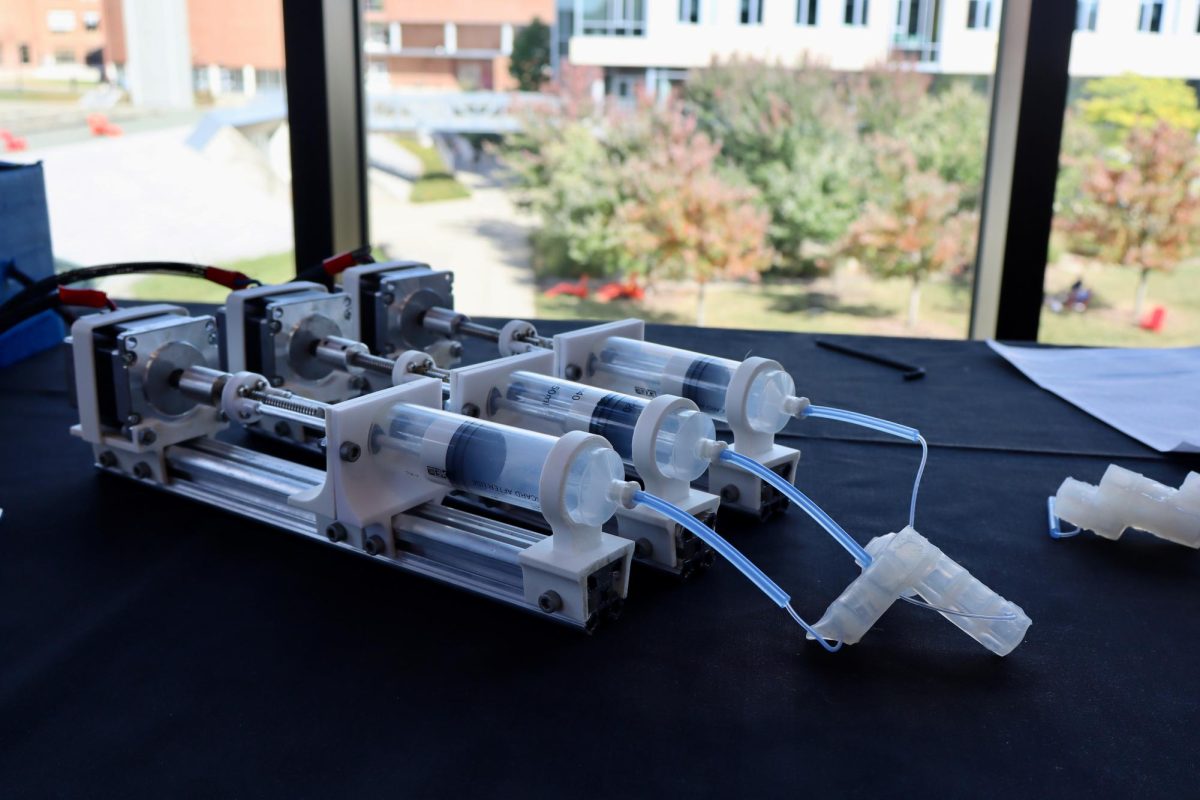
Margaret Riley, a professor of evolutionary biology at the University of Massachusetts, is partnering with Chinese scientist Dr. Xiao-Qing Qiu to work on a new drug platform invented by Qiu called pheromonicins. This potential new drug would have the potential to combat diseases such as HIV and cancer.
Pheromonicins are made from protein bacteriocins, which can be extracted from most species of bacteria. The bacteriocins have competitive interactions that act like communication signals, and also have the ability to kill these types of cells.
Qiu has modified this and developed pheromonicins which would have these bacteriocins target and attack specific cells such as cancerous cells, tuberculosis and HIV. The pheromonicins also do not recognize human cells, so the body wouldn’t recognize it as a foreign entity and get attacked.
While Riley said her research has been focused on the most efficient way to treat urinary tract infections caused by catheters, she said she hopes the work she does in collaboration with Qiu will “increase the number of effective therapeutic drugs and strategies to combat drug resistance in quickly evolving diseases such as HIV, TB, malaria, cancer and cystic fibrosis.”
In Beijing, Qiu has already successfully developed one application to combat metastasis in cows, which is inflammation in the mammary glands. So far, the tests have shown there would be no toxicity to humans. If this success continues in human trials, the treatment of disease in the upcoming years would change.
Qiu, who is a professor at Sichuan University, reached out to Riley last June asking to look over his manuscript. Although she said she typically declines these types of requests because she’s frequently in demand, she took an interest in his manuscript and communication between the two continued.
Riley has also done research with evolutionary biology and environmental issues, but said she has lacked funding for research on antibiotics. So when approached with this partnership, she described it as a “sort of luck and being in the right position when luck offered this opportunity.”
With very similar views in science and the same goal of creating a targeted approach to disease, the two have been working together ever since visiting each other in both Amherst and Beijing.
The Pheromonicin Institute of Beijing is supported by the Chinese government, which is paying $400 million each year to aid this research. One of the conditions for the government to support this institute was that the institute had to branch out and create sister institutes internationally. Riley agreed with the idea, and there is a plan in the works to create an branch in Amherst or in the Springfield area. This plan is hoped to be begin this year.
Riley wants to see these products tested in humans and for different types of applications to be developed in the next five years.
Riley said she is excited for the future and is glad to be working on a project that is “one chance in a lifetime to change the field of infectious disease treatment.”
Christina Yacono can be reached at [email protected].


















